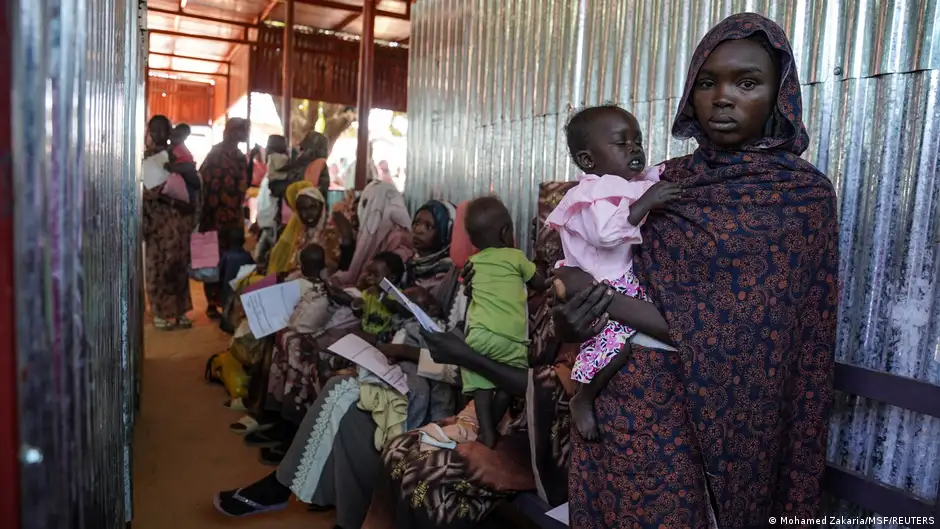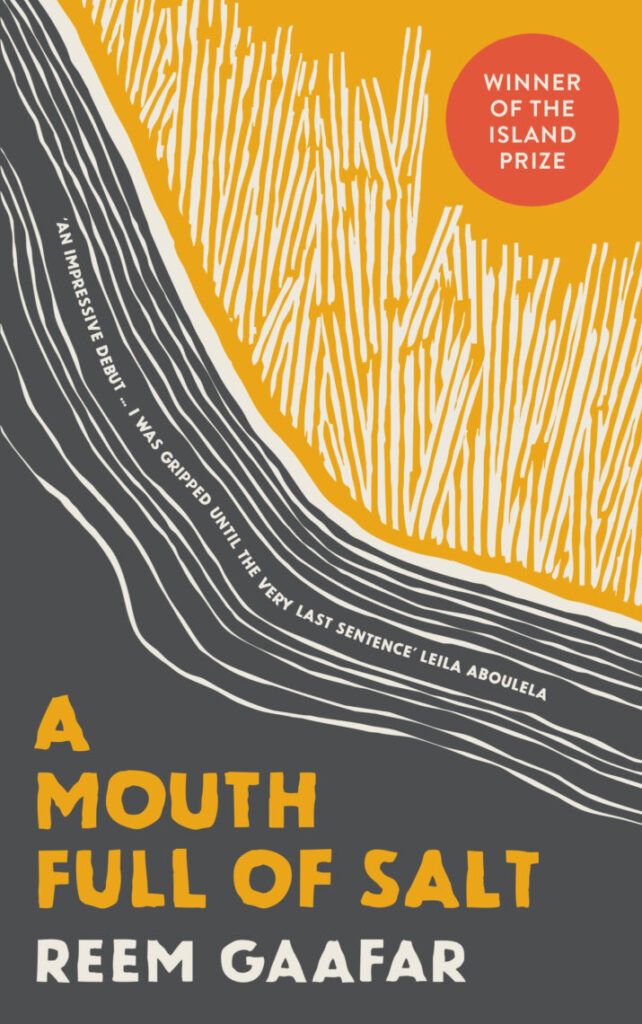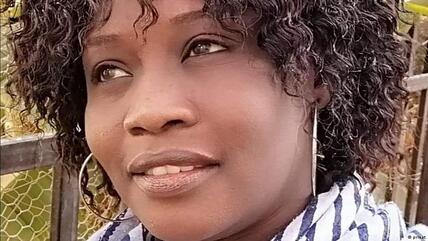"We haven't lived in dignity for a long time"

Ms Gaafar, your novel begins with the drowning of a boy in a Sudanese village and centres around the intertwined stories of three women – Fatima, Sulafa and Nyamakeem. Who are they and what do they represent?
Reem Gaafar: Fatima is a character I had had on my mind for a long time. She is a young woman eager to learn, but grows up in a small village in northern Sudan where women don't get any kind of education. Initially, the story was just about her and the boy who drowned – an incident based on a true story a friend of mine told me about her relatives' son who passed away while in the care of his grandparents.
As writing progressed, I also included the characters of Sulafa – the mother of the drowned boy – and Nyamakeem who is from South Sudan. I usually have a specific idea or picture in my head and then the feelings around that is what drives the writing.
For this novel, the main feeling was injustice in general and injustice based on race and gender in particular. Each of the three women experiences injustice in a different way. But they are all representatives of what women in Sudan and in the region face on a daily basis.

"My writing process is chaotic"
Injustice, race, gender – while these issues are also pressing in today's world, your novel spans from the 1930s to late 80s, right before the dictatorship of Omar Al-Bashir. Why?
Gaafar: Initially, I didn't have this time period in mind, but eventually I ended up in the 80s. The more the character of Nyamakeem became a part of the story, the further I travelled back in time.
My writing process is chaotic, I just go with the story. All the events in the novel, in their own way, lead up to where we, as Sudanese, are today – from the political and economic situation that we have been in for decades up until the current war.
What bothers me is that even were the story set in a different time period, the experiences of the women would not have changed much, because the society they live in has barely changed. Each woman, each person still has to face their personal small family, their extended family and then society at large.
One key moment in the book is the scene of a birth, which you describe in great detail. Does your career in the medical field play into your work as an author or is the constant switch between the factual and the fictional world an obstacle to your work?
Gaafar: Many doctors are able to separate things: they concentrate on the treatment and sympathise with their patients. But they are not emotionally involved. I wasn't able to do that. The same thing that fuelled my writing – my imagination, my feelings – caused me problems as a clinician. I would get upset and be stressed all the time, especially if a patient passed away, or if I felt that I didn't do the best I could.
Because of that, I moved from being a clinician into the public health sector. But this factual way of thinking also helps me as a writer: even if there is flexibility in fiction, I always support my writing with research. If you saw my latest draft of "A Mouth Full of Salt” you would see all the footnotes.

Literary inspirations
Could you give an example for the research process of the novel?
Gaafar: Because of the difficult relationship between South Sudan und Sudan, I was very hesitant to write anything about the South. I felt like it wasn't my place, even though I studied at a South Sudanese university and have many South Sudanese friends.
It just felt like a huge responsibility, and I did not want to come up with something superficial. So I deep dived into the research and when we were about to publish the book, I insisted that a South Sudanese scholar review it. Eventually Francis Deng did so and gave us the green light, which was a big honour to me due to his age and political involvement.
In 2023, "A Mouth Full of Salt" won the "Island Prize" which supports unpublished writers from Africa and the African diaspora. Which African and Middle Eastern female writers inspire you?
Gaafar: My biggest source of inspiration is Leila Aboulela. Not just because she is a great writer or because she is part Sudanese. But because as someone who is Sudanese and grew up Sudanese, but doesn't read Arabic, her work in English gave me a sense of belonging.
I always loved books. Reading English literature like Charles Dickens or Stephen King was something I truly enjoyed. But as a so-called "third culture kid”, I could not relate to these stories.
That's why representation does matter. Writing as a wife, a mother and as someone who is studying, Aboulela is still able to archive all of these things, which I also find very inspirational.
Apart from her, I have been following Fatin Abbas for a while, due to her connection as someone who is Sudanese, but grew up in the West. Then there is Stella Gaitano from South Sudan and of course Chimamanda Ngozi Adichie.

Children to fill the entire earth
Stella Gaitano's debut novel "Edo's Souls", set between Sudan and South Sudan, stages an epic battle between the forces of Motherhood and Death
Sudan's revolution "moved me"
English literature from Africa and the African diaspora has recently reached greater audience on a global scale. How do you reflect on that?
Gaafar: I grew up in the Middle East and there were literally no African books available, at least in commercial bookstores. Even for me as an African, there was always this gap of what I know and what exists in other African countries. This is starting to change a bit and the market is becoming more inclusive.
Especially in these times, with the rise in racism, Islamophobia and all these wars and conflicts, it is important to know about other nations as people, not as what governments or single individuals in power represent.
Your current book project aims to shed more light on the 2018/19 Sudanese Revolution, toppling Bashir's rule. What role did these events play in your life?
Gaafar: The characters of this second book have also been with me for quite some time, although I didn't know yet in which story or which time period they would belong. Then the revolution happened, and I knew. I write about ordinary people, doing ordinary or extraordinary things.
And one of the most extraordinary things I have ever witnessed in my lifetime was the 2018 Revolution. Unfortunately, I left Sudan one week before it started. But I was blogging about it almost every day while it lasted.
I was living in the United Arab Emirates at the time, following the protests that usually took place every Monday and Thursday, watching the livestreams and then waiting for the numbers to roll in about how many people got shot, because it was so bloody.
After every protest I would say: that was the last one, the people won't dare take to the streets again. But they did. They were facing all this fear, while having kids in school and struggling financially. That was very moving for me.
"Black lives don't matter"
While the revolution was successful, unfortunately what followed was a turbulent transitional period, a military coup, and the still ongoing war. How difficult is it for you to celebrate the success of publishing your first novel while the war in Sudan turns one on 15 April?
Gaafar: I am trying to celebrate the publication – I have been writing since I was 13 years old, this book has been a long time coming. But as soon as I scroll through social media and see death, destruction, family members searching for missing loved ones and posts by those trapped without food, I find it really hard to write an announcement about my book.
Some people might look at it as positive news and distraction from the war, others might find it insulting. On the other hand, I want to use this opportunity to raise awareness about what is happening in Sudan, as this is the only thing I can do.
Such awareness is urgently needed: more than 10 million people have been displaced internally or fled to neighbouring countries with little international attention. What do you wish for the people of Sudan?
Gaafar: I wish people in Sudan could just have normal lives like other people – waking up in their homes, talking their kids to school, going to university, being able to pay their bills, having proper food and safety.
We haven't lived in dignity for a long time. As of now, Sudanese will not be able to return to their homes anytime soon, which is a very difficult when you want to plan for your future. Also, begging for people's attention is pretty insulting.
We knew that black lives don't matter, especially African ones. But having it pushed in your face is hard. I wish people would learn more about Sudan, making us be seen and heard in our misery. And if reading my book will make people ask more questions about what is going on in the country – that would be great.
Interview conducted by Anna-Theresa Bachmann
© Qantara.de 2024
Reem Gaafar grew up in New Zealand, Oman and Sudan and lived and worked in the United Arab Emirates. She currently resides in Canada together with her family. Her debut novel "A Mouth Full of Salt" was published by Saqi Books in April 2024.
